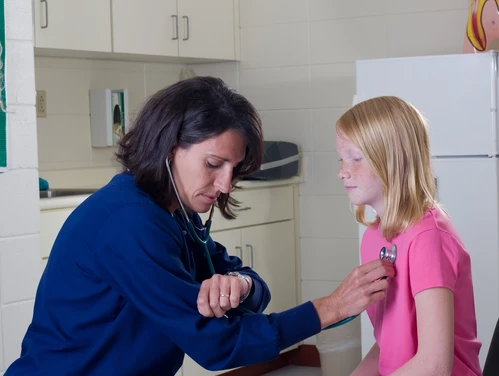Content Information
School Districts, accredited nonpublic schools and programs may have students with health service needs participating in field trips and excursions as part of their education program. Field trips and excursions occur within Iowa, out-of-state, or internationally. School districts and accredited nonpublic schools must follow the regulations related to safe medication administration and delivery of special health services to students requiring ongoing health services, in addition to any other requirements within Section 504 and IDEA (IAC 281.14).
Role of the School Board
School boards or authorities in charge of a public or accredited school may develop or have adopted a policy for field trips and excursions. The policy allows for the school board or authorities in charge, licensed administrator and licensed nurse to be notified well in advance of the field trip and excursion to ensure licensed educators and healthcare providers meet regulatory requirements of practice for ongoing health service delivery.
Role of School Administration
Field trips require approval from school administrators. Schools have processes for educators to make a request for a field trip. School administrators include the school nurse in the notification at the time of request of field trips (e.g. similar to notifying the Director of Transportation that a bus driver will be needed) to provide adequate time to ensure there is a properly trained, qualified school personnel to administer medications in accordance with school policy and state regulation. A qualified designated person accompanies children who need medications on field trips, replicating the procedures used in the school building using the every five year training and annual skills check to ensure competency as defined by state regulations regarding medication administration.
School Leadership Best Practice Tip: Add the school nurse to the beginning of the notification for field trip approval, so the nurse has adequate time to ensure there is a qualified person to attend with the student to administer medication in accordance with school policy.
Role of the School Nurse
The school nurse is the licensed health personnel delegating the task of medication administration. The school nurse must understand their Nurse Practice Act and school policy. The school nurse must also understand the Nursing License Compact and how to locate other state Nurse Practice Acts.
Questions & Answers
- Question: May an out-of-state licensed nurse attending a field trip who is not part of the Nurse Licensure Compact practice in Iowa with one of their students?
Answer: A licensed nurse must hold an Iowa license or a multistate license to practice in the state of Iowa regardless of their employer’s location. See below: IAC 481 -- 617.3
Mandatory licensure. A person who engages in the practice of nursing in the state of Iowa as defined in Iowa Code section 152.1, outside of caring for one’s family, shall have a current Iowa license, whether or not the person’s employer is in Iowa and whether or not the person receives compensation. Any nurse who participates in the care of a patient situated in Iowa, whether that care is provided through telephonic, electronic or in-person means, and regardless of the location of the nurse, must obtain Iowa licensure unless specifically exempted.
Current Iowa licensure is not mandatory when:
a. A nurse holds an active multistate license issued by a party state, pursuant to Iowa Code chapter 152E. A nurse who practices nursing in Iowa pursuant to a multistate licensure privilege is subject to the jurisdiction of the board, the courts, and the laws of Iowa. - Question: What are the limitations/benefits of the Nurse Licensed Compact (NCL)?
Answer: The NLC pertains to Registered Nurse and Licensed Practical Nurse licenses only. An Advanced Registered Nurse Practitioner (ARNP) must hold an individual ARNP license in each state of ARNP practice.
